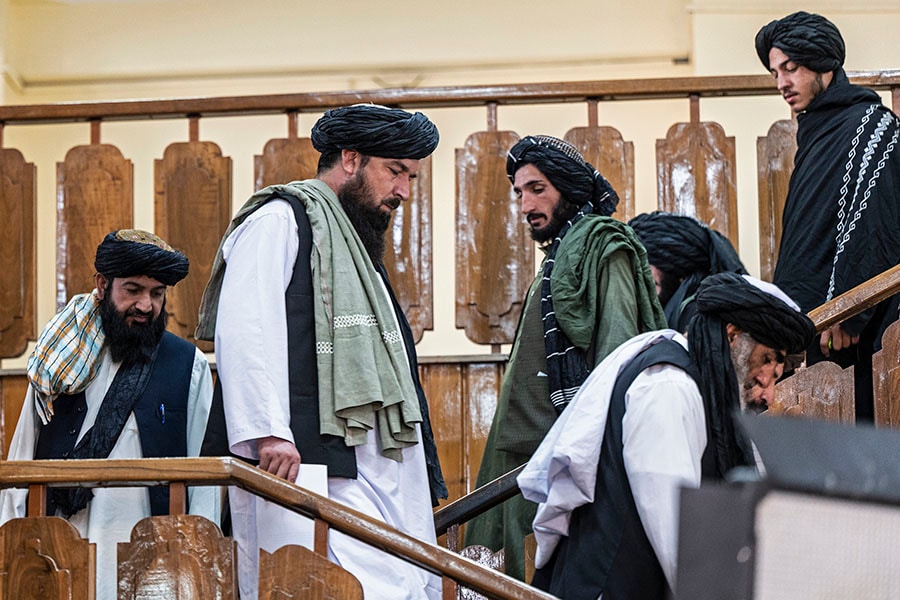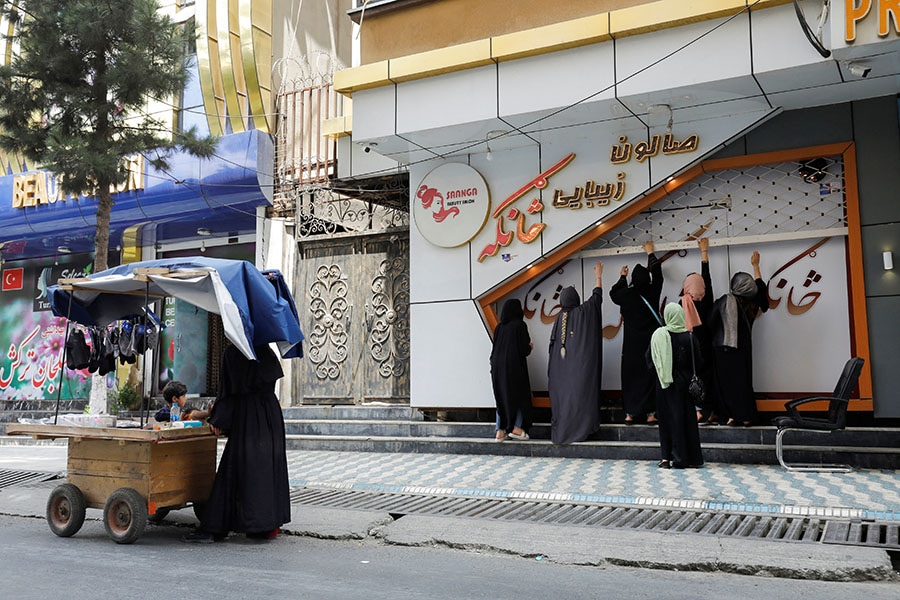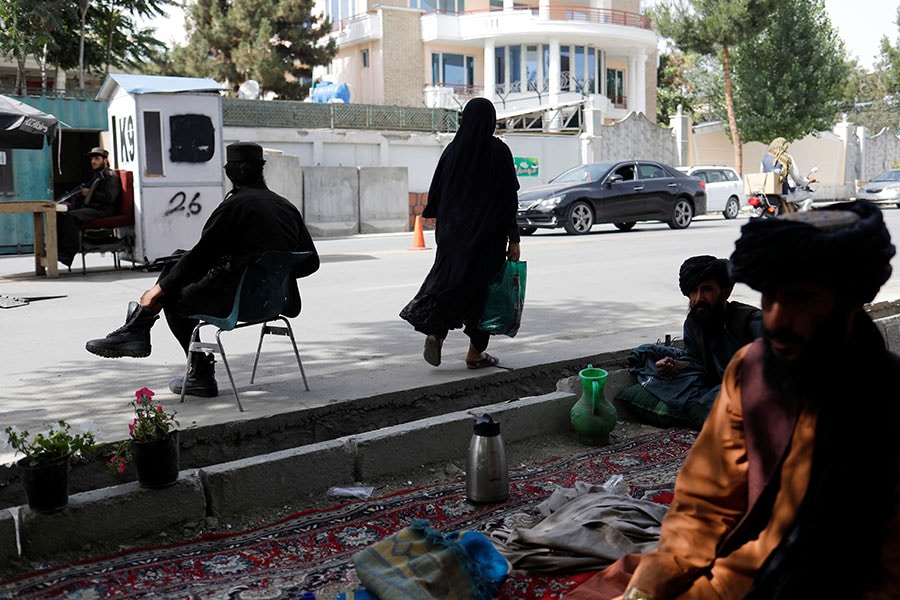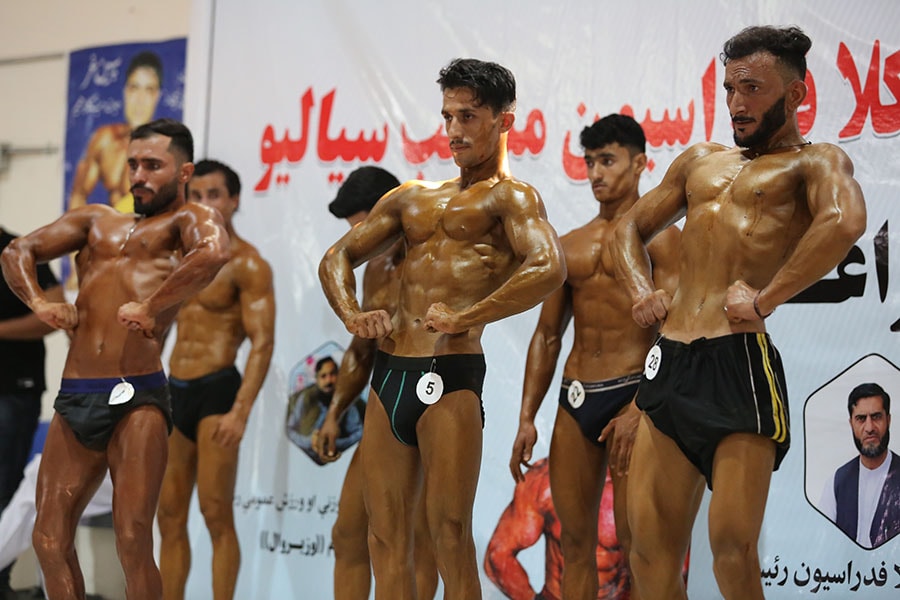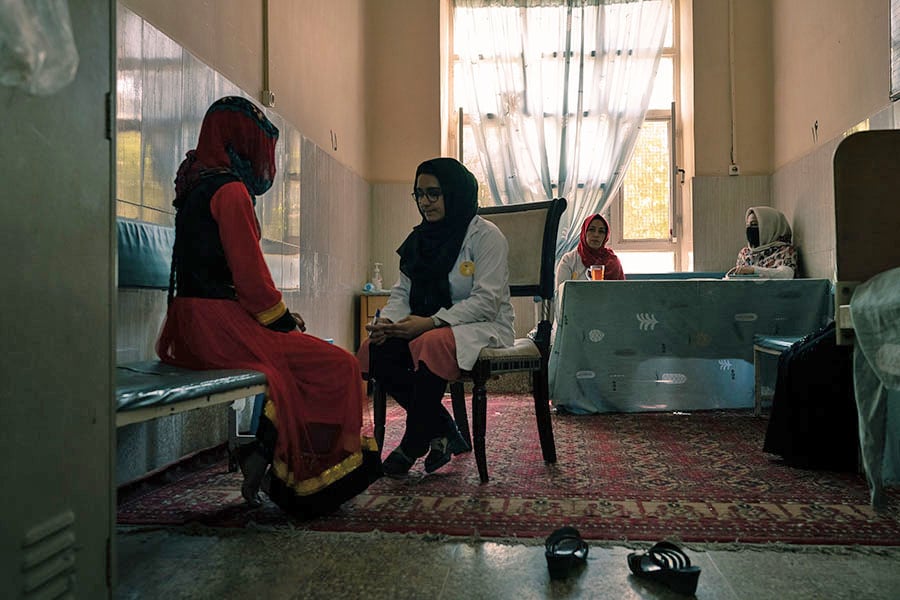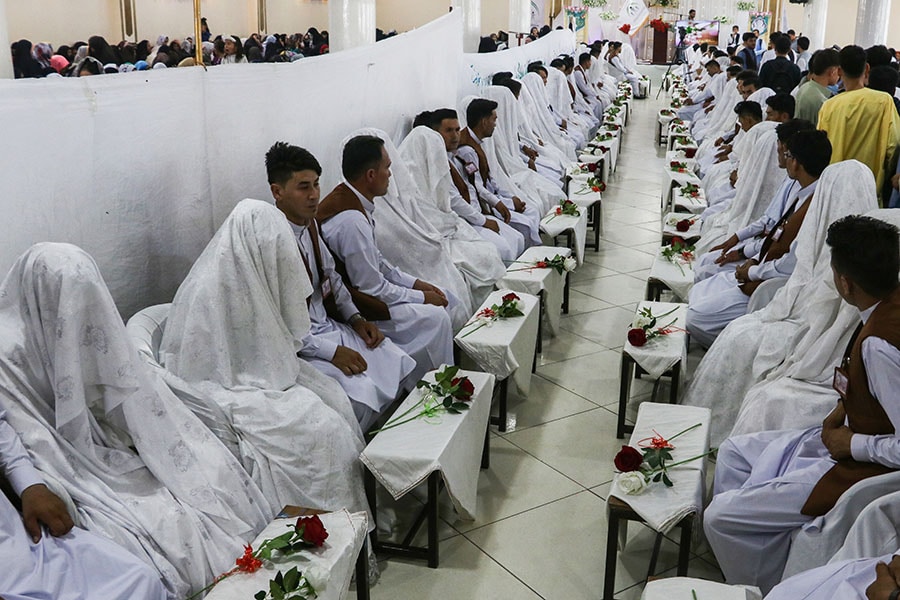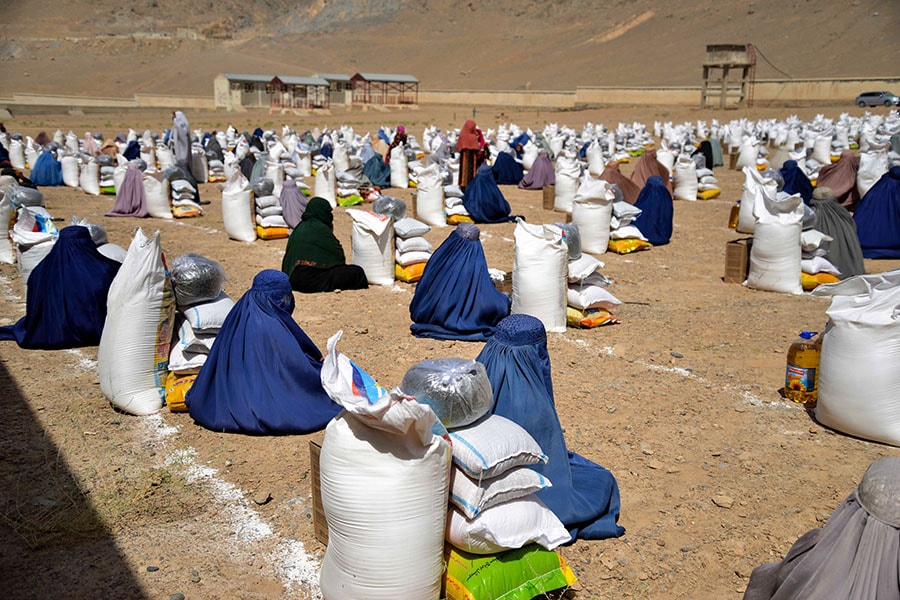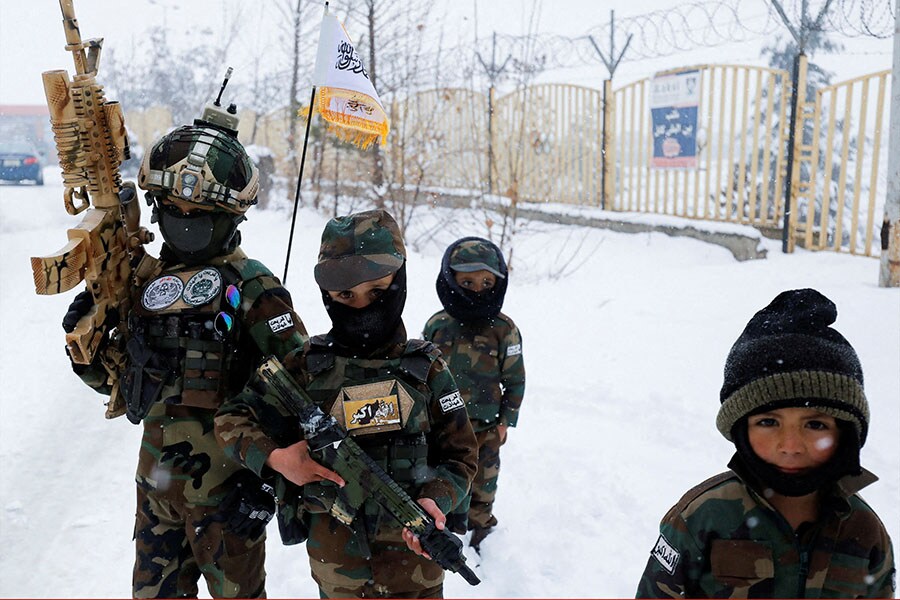
Gender Apartheid: Two years of Taliban rule and its impact on women
Afghanistan's Taliban government marked the second anniversary of its return to power, while the International community denounced the ever-tightening restrictions on women's rights in the country. Banned from attending schools, universities, and public spaces, and restricting their participation in the workforce, Afghan women have borne the maximum brunt for two years under Taliban rule. The UN is now calling it a 'Gender Apartheid'
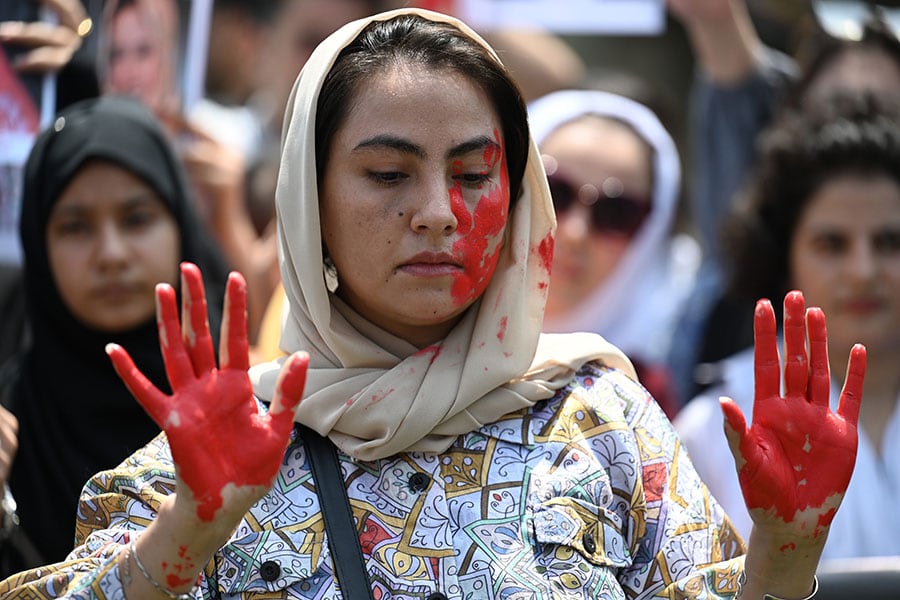 Image: Aamir Qureshi / AFP
Image: Aamir Qureshi / AFP
Expressing their fear and despair over the loss of rights, an Afghan national takes part in a women’s demonstration against the Taliban government in Islamabad on August 15, 2023, on the occasion of the second anniversary of the Taliban takeover of Afghanistan. In 2021, only one month after returning to power for the first time in 20 years, the Taliban authorities banned girls from attending secondary school, before closing university doors to them in December 2022. Women were ordered to fully cover up in public, ideally in a burqa, and then were also heavily restricted in the workforce.
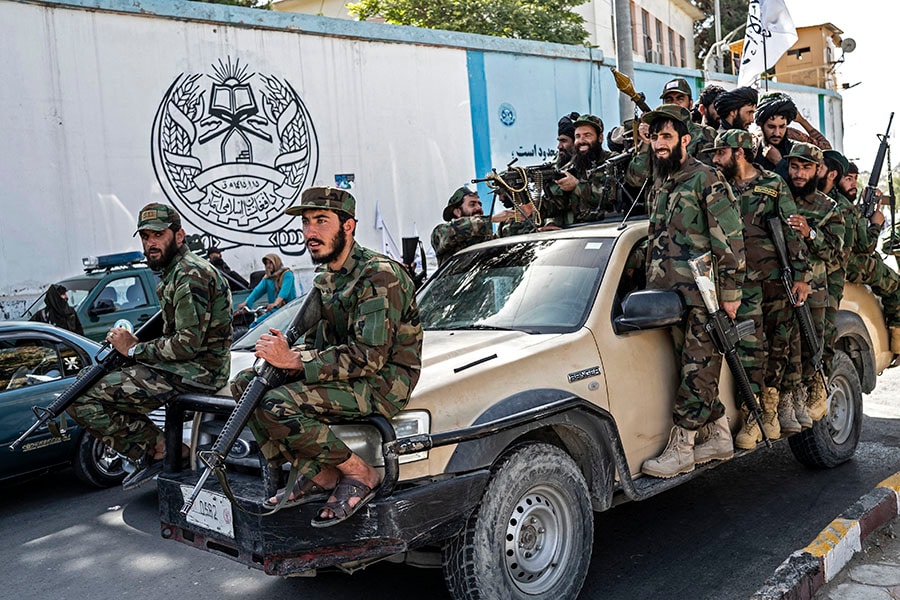 Image: Wakil Kohsar / AFP
Image: Wakil Kohsar / AFP
Armed Taliban parade in a vehicle convoy near the US embassy in Kabul on August 15, 2023, during the second-anniversary celebrations of their takeover. A statement from the Afghan authorities hailed their victory that "paved the way for the establishment of the Islamic system in Afghanistan. The conquest of Kabul proved once again that no one can control the proud nation of Afghanistan"
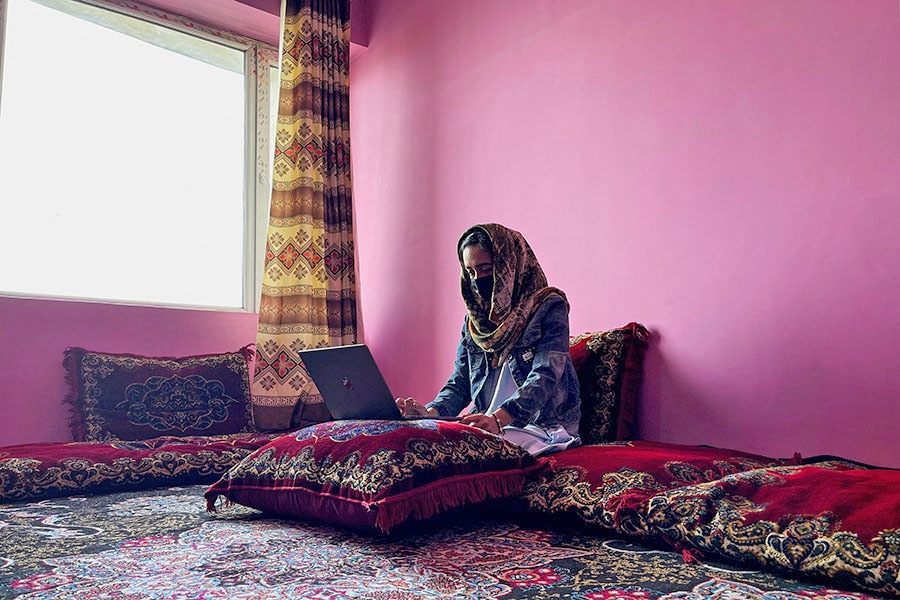 Image: Sayed Hassib / Reuters
Image: Sayed Hassib / Reuters
Sofia, an Afghan student, speaks English during an online class, at her house in Kabul, Afghanistan, March 18, 2023. Countless girls and women have already had to leave the country to continue their education after the Taliban government returned to power and banned more than 1.1 million girls and women from schools and universities.
